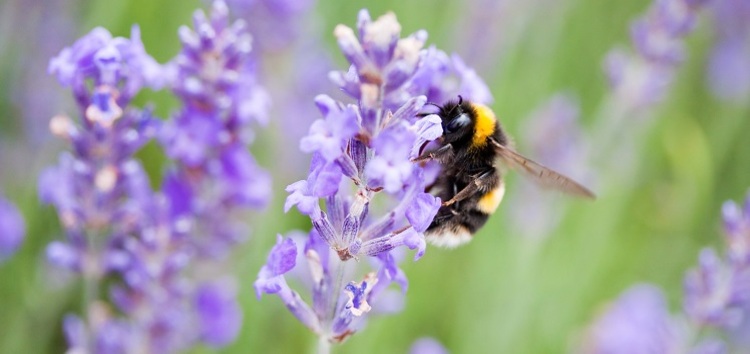
The buzzing world of bees
For centuries, storytellers have captured our fascination with bees in legends, myths and tales woven into folklore and cultures around the world.
On 20 May each year, World Bee Day is observed, raising awareness of the importance of bees and other pollinators in Earth’s ecosystems and the global food system while promoting efforts to protect them.
As part of the EBRD’s commitment to fostering sustainable agriculture and building thriving ecosystems, the Bank is helping honey producers across the regions where we invest overcome industry challenges and thrive.
With support from the European Union and Sweden, our Advice for Small Businesses programme has had a transformative effect on honey producers from Albania to Moldova and the Kyrgyz Republic, helping them to implement sustainable farming practices, bring innovative approaches to marketing and branding, embrace digitalisation and plan for expansion.
Humanity vs the bees
Bees are essential for pollinating crops and plants, which itself is critical for maintaining the biodiversity of our planet. It is estimated that one-third of the food that we eat depends on pollinators like bees.
Without them, we would face food shortages and decreased crop yields, which would lead to widespread hunger and economic instability.
Unfortunately, bees are facing numerous threats including habitat loss, the use of pesticide and insecticides, and humanity-driven climate change. As a result, there has been a declining trend in bee populations in recent years, which causes concern for the health of our planet.
Director of honey producer cooperative Ghidapis Group in Moldova Dragalina Gincu says, “In recent years, climate change has affected the development of bee families as well as the amount of honey harvested per family. The use of insecticides during the flowering period of agricultural crops and fruit trees results in massive losses of worker bees.”
She continues, “Every year, to protect the bees, we ask farmers not to use toxic preparations, and as a business we try to operate in harmony with nature, using natural materials like wooden beehives and glass jars while seeking to establish sustainable partnerships with distributors abroad.”
The EBRD financed an engineering design project for the business, which enabled it to build a modern beekeeping centre for collecting, packing and storing processed honey. The centre is fitted with the latest equipment and utilities so as to consume much less energy than in the past.
Raising standards
In the honey production industry, competition is fierce and there are also many challenges that can affect the quality and quantity of honey produced.
The EBRD and its donors have supported many companies in implementing sustainable farming practices, improving bee health, developing new product designs along with marketing and branding strategies, and assisted in the harvesting, collecting, processing and exporting processes for honey. This has been accomplished in alignment with ISO 22000 HACCP standards, ensuring companies comply with the legislation of the countries where they deliver their honey.
All these initiatives ensure the availability of high quality honey for consumers worldwide and enhance the conditions in which the bees live.
Natural honey
Honey is a sweet, delicious and nutritious food, with a number of therapeutic benefits from the natural vitamins, enzymes and essential oils it contains.
Chingiz Umetaliev, co-founder of Honey Mount in Kyrgyz Republic, says, “Our company is a big family that offers natural, high quality honey produced in the finest apiaries of Kyrgyzstan without additives and preservatives.” The company’s honey is presented in a variety of flavours and types that meet the highest standards of quality and safety: “We take care of our customers (and our bees!) and monitor the quality of products at every stage of production,” he concludes.
That’s why World Bee Day is so important. It is an opportunity to learn more about these fascinating – and hugely important – insects and take action to protect them.
From planting pollinator-friendly flowers in your garden to buying honey or supporting beekeepers who are working to conserve bee populations in your local area, there are many ways you can get involved on an individual level.
By working together, we can help ensure that bees continue to thrive and contribute to the health and well-being of our planet.
So, this World Bee Day, let’s all take a moment to appreciate the incredible role that bees play in our world and commit to playing our own small part in protecting them.


